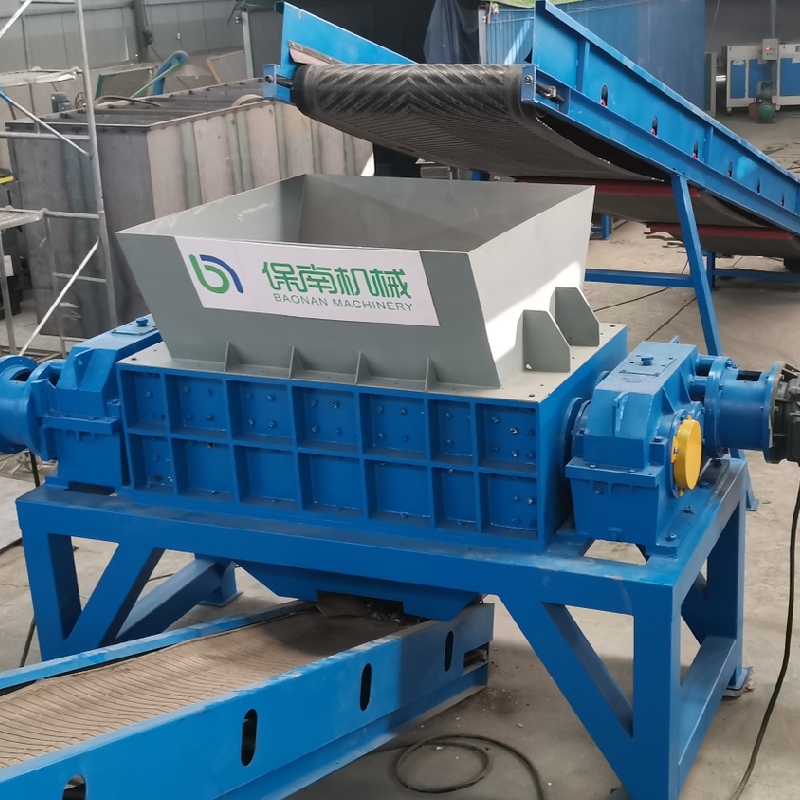

11-р сар . 24, 2024 19:23 Back to list
The Importance of Steel Recycling Plants in Sustainable Development
In an era where environmental sustainability is paramount, the role of steel recycling plants has emerged as a crucial component of modern industrial practices. Steel, being one of the most recycled materials in the world, not only helps conserve natural resources but also significantly reduces energy consumption and greenhouse gas emissions. This article will delve into the importance of steel recycling plants and their contributions to both the economy and the environment.
Steel is a versatile material used in a myriad of applications, ranging from construction and automotive to consumer goods. Over time, steel products reach the end of their life cycle, generating vast amounts of waste. Steel recycling plants play an essential role in recovering this valuable resource, ensuring that it does not end up in landfills. Instead of discarding old steel, recycling plants collect, sort, and process it into raw material, ready to be reincorporated into the production cycle.
One of the primary benefits of steel recycling is its potential for energy conservation. The process of recycling steel consumes significantly less energy compared to producing new steel from iron ore. In fact, it is estimated that recycling one ton of steel saves approximately 1,100 kilograms of iron ore, 630 kilograms of coal, and 100 kilograms of limestone. Furthermore, the energy savings associated with recycling steel can be as high as 74% compared to the energy needed for virgin steel production. This reduction in energy consumption not only lowers production costs but also minimizes the carbon footprint associated with steel manufacturing.
Moreover, steel recycling plants contribute to employment and economic growth in local communities. These facilities require a skilled workforce to operate, from machine operators to engineers and environmental scientists. The operations involved in collecting, processing, and transporting recycled steel create numerous job opportunities. In addition to direct employment, steel recycling plants also stimulate growth in ancillary industries, such as logistics and waste management services. As the demand for recycled steel continues to grow, the economic benefits associated with these plants will likely expand.

Another critical aspect of steel recycling is its positive impact on the environment. The extraction and processing of virgin materials necessitate significant land disruption, habitat destruction, and water usage. By recycling steel, we can mitigate these negative environmental impacts. Additionally, recycling steel reduces the need for landfill space, which is becoming increasingly scarce in many regions. Each ton of recycled steel diverts scrap from landfills, reducing environmental pollution and conserving resources for future generations.
Steel recycling plants also play a pivotal role in the circular economy, where materials are reused, remanufactured, and recycled to create new products. This concept promotes sustainability by extending the life cycle of materials and reducing waste. As society becomes more aware of the finite nature of natural resources, the need for effective recycling systems is becoming increasingly apparent. Steel recycling is a prime example of how industries can adapt to circular economy principles, ensuring that valuable materials do not go to waste.
Despite these benefits, steel recycling plants face challenges that must be addressed to maximize their impact. These include fluctuating market demands for recycled scrap, the need for advanced technology in the recycling process, and variable regulations across different regions. To overcome these challenges, investment in research and development is essential. Innovations in recycling technology, alongside effective policies that support the recycling industry, can enhance the efficiency and effectiveness of steel recycling operations.
In conclusion, steel recycling plants are vital to achieving sustainable development goals. They conserve natural resources, reduce energy consumption, create jobs, and minimize environmental impacts. As the push for a more sustainable future continues, the importance of these facilities will only grow. Therefore, supporting and investing in steel recycling initiatives is not just an industrial necessity but a moral obligation towards the planet and future generations. Through collaboration among governments, industries, and communities, we can foster a robust steel recycling ecosystem that contributes to a cleaner, greener world.
Latest news
Troubleshooting Common Eddy Separator Problems
NewsJul.04,2025
The Role of Metal Recycling Plants in Circular Economy
NewsJul.04,2025
The Impact of Recycling Line Pickers on Waste Management Costs
NewsJul.04,2025
Safety Features Every Metal Shredder Should Have
NewsJul.04,2025
How Industrial Shredders Improve Waste Management Systems
NewsJul.04,2025
How Cable Granulators Contribute to Sustainable Recycling
NewsJul.04,2025